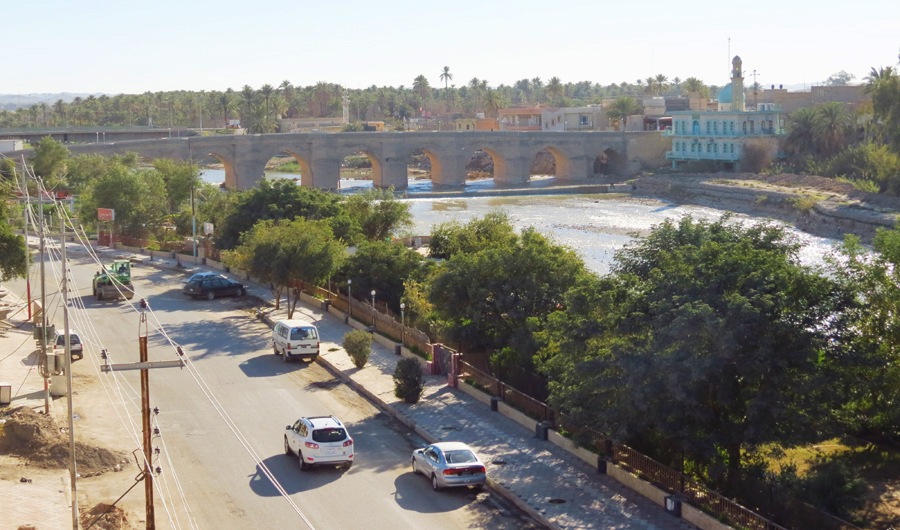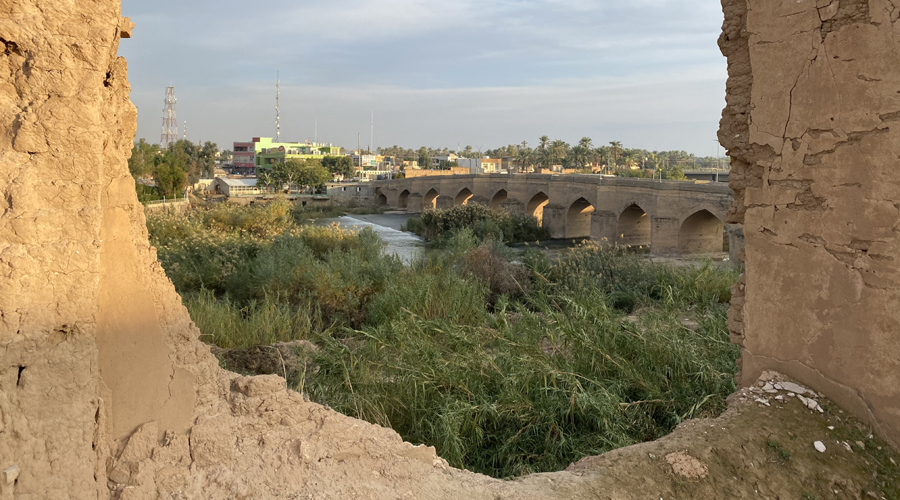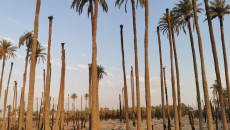Residents of at least five thousand houses in Khanaqin district, northeast of Baghdad, lack basic services due to building houses over public property without permission following the ousting of Saddam Hussein regime in 2003.
The neighborhoods of Bakhtiari, Sirwan and Ban Mel are among the residential neighborhoods that were illegally built after 2003 in Khanaqin and all over Iraq, in particular the disputed territories between the Iraqi federal government in Baghdad and the Kurdistan Regional Government KRG based in Erbil.
The residents of these houses are demanding official ownership of the plots of lands nad houses built over it in order to be included in the local administration plans for basic services projects such as sewerage, water and national power supply.
Majid Hamid, a resident of the Sirwan neighborhood who built a house in that neighborhood in 2010, says, "The government has not implemented any service projects for us. The neighborhood in which I live lacks paved streets, water and sanitation networks. We demand the government to register our houses so that it is included for public services."
The neighborhood in which I live lacks paved streets, water and sanitation networks
Sirwan neighborhood includes 1500 houses, all without register of deed. The lack of official registration document and absence of public services led to a sharp drop in prices.
Hamid, a teacher, says that building his house cost him 45 million dinars (USD30,000), but now it has dropped to less than half.
After 2003, tens of thousands of houses were built on state-owned lands yet without official permission in all of Iraq's provinces.
There are more than 60,000 houses and commercial buildings were built illegally in Kirkuk province, which ranks third after Baghdad where more than 130,000 units were built illegally, followed by Basra with 90,000 units, according to an official statistic obtained by KirukNow from the mayor of Kirkuk.
Following fall of Saddam regime in 2003, thousands of people expelled from Kirkuk and disputed territories, mainly Kurds and Turkmens, have received plots of lands or green light from the political parties ruling the region without being officially registered or permitted by local and federal authorities.

Diyala: Corniche area by Alwand River, one of the tourist areas in Khanaqin. Hawry Azad
Imad Fadel, who lives in the same neighborhood of Hamid, said, “I spent about 60 million dinars on building my house, but now I regret that I have to buy drinking water from mobile tanks, and the neighborhood lacks paved streets and sewage networks. Several years have passed and we have been waiting for services to be provided to us.”
The General Secretariat of the Iraqi Council of Ministers in November 2019 issued an order to implement the decision of the Council of Ministers to all Iraqi governorates, to entrust the encroached residential lands, outside the basic designs of cities, to the trespassers who built housing units.
The decision stipulated the payment of an amount of 5% of the total value of the plot of land, and the rest in installments for a period of 20 years, but the decision has not yet entered into force.
Soran Ali, director of Khanaqin municipality - which is affiliated with the KRG, told (KirkukNow), "The residents of these neighborhoods are the ones who left Khanaqin during the Baath Party rule, and then returned within the framework of implementing Article 140 of the Iraqi constitution and these lands were distributed to them. We distributed it to them, but the ownership procedures are the duty of the Iraqi government."
According to Article 140 of the Iraqi constitution, each family that was deported from its areas during the rule of the Baath Party, is compensated with 10 million Iraqi dinars and a plot of land, but these plots of land have not been officially given to the beneficiary families and the government considers it trespassing.
Khanaqin is one of the districts of Diyala Governorate and one of the disputed areas between Baghdad and Erbil, and the resolution of its current situation is linked to the implementation of Article 140 of the Iraqi Constitution which is a roadmap of three stages: normalization, census and finally referendum
In the Khanaqin district, two municipalities serve the district, one is funded by Bgahdad and the other one by the (KRG).
Soran Ali said, "After the government decided in 2019, to title the encroached lands, we submitted a report regarding these homes to the federal government in 2020, but we also do not know the reason why they have not been registered yet. No government has implemented our demands."
The fate of the disputed areas has not yet been resolved
For her part, the representative of Diyala province in the Iraqi parliament, Suzan Mansour, a Kurd, says that she followed up the case and explained to (KirkukNow) that "one of the obstacles for registration is that the fate of the disputed areas has not yet been resolved, and according to the constitution, population expansion, change and increase is prohibited.”
"We are constantly searching with the municipality of Khanaqin and Diyala for a solution to register these homes, but the other problem is the tensions that Iraq witnessed recently, which led to the disruption of the government's work and the inability of Parliament to perform its duties," she added.
Khanaqin District, home to 90,000 Kurds, Arabs and Turkmens, Sunnis and Shias, is part of Diyala province and is one of the disputed territories which extends from Khanaqin, on the border with Iran, to the northern oil-rich city of Kirkuk up to Shingal (Sinjar), home to the Ezidi community, in Mosul, in the far west, on Iraq-Syria borders.
Most of the disputed territories were under control of the Kurdish Peshmerga forces up to October 2017, when the Iraqi Security Forces ISF took over control of these territories following the defeat of ISIS.






